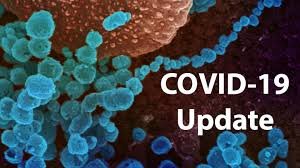UP sero survey reveals 20% people have developed antibodies (Population-based ‘sero survey’ in select districts of the country with an aim to monitor the trend in the prevalence of SARS-CoV-2 virus which causes the Covid-19 disease) The districts from where samples sero survey reveals were collected are Lucknow, Kanpur, Varanasi, Gorakhpur, Kaushambi, Prayagraj, Moradabad, Meerut, Ghaziabad, Baghpat and Agra. Covid-19 sample are tested at Ram Manohar Lohia Hospital, Gomti Nagar, in Lucknow.

About one in five of the 16,000 people tested during a serological survey in Uttar Pradesh in September showed the prevalence of antibodies against the Sars-Cov-2 pathogen that causes the Covid-19 disease, the state health department said on Thursday. “Of the entire 16,000 samples, 3,536 tested positive for antibodies, which is 22.1% in terms of sero prevalence,” said additional Chief Secretary , health, Amit Mohan Prasad.
The samples were sent to King George’s Medical University (KGMU), Lucknow, for testing to work out the presence of antibodies, he said.
Health experts said the sero survey indicated two things. “If 22.1% people had antibodies in September, it means the share are going to be even quite that today,” said Dr Ved Prakash, head of the department of pulmonary critical care medicine at KGMU.
Dr PK Gupta, former president of IMA, Lucknow, said, “This report is a sign of community spread within the state. Now, the government should specialise in a mass awareness campaign to interrupt the chain of infection. People should follow the Covid-19 protocol strictly, covering their face with mask, maintaining social distancing and washing hands at regular intervals,” he said.
Dr Gupta said the government should also increase sample tests by engaging private laboratories. the rise in sample tests would make sure that people testing positive for Covid-19 would immediately enter isolation or get admitted in hospital, he said. it might check the spread of the infection among the remaining population, he added.
Medical practitioner Dr AK Singh said data of the sero-survey implied that fifty million people out of the 230 million population of Uttar Pradesh may need been exposed to the virus and become carriers of the antibodies by September. the amount of the people exposed to the virus must have multiplied by November, he added.
The government had taken the right decision to extend the sample tests and launch a mass awareness campaign across the state, he said. Dr Amresh Singh, head of the microbiology department at Baba Raghav Das Medical College in Gorakhpur, said the numbers showed that even after infection, an outsized population might not have developed antibodies thanks to co-morbidity or a weak system . There was a requirement for normal follow-up to urge a transparent picture of the extent of infection, he said.
Antibodies are immune molecules produced by the body to fight pathogens. The presence of antibodies within the blood typically suggests that folks infected with an epidemic would gain immunity for a few period. the newest studies show that antibodies aren’t sustainable and start to disappear within three to four months, Dr Singh said.

